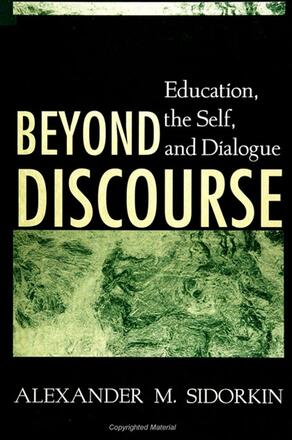
Beyond Discourse
Education, the Self, and Dialogue
Alternative formats available from:
Drawing on the works of Martin Buber and Mikhail Bakhtin, the author explores the roles that dialogue, laughter, and spontaneity play in the education of the whole person.
Description
Using Mikhail Bakhtin's concepts of dialogue and carnival, and in connection with the ideas of Martin Buber, Sidorkin explores the issues of difference and identity in a very postmodern view of the self. He addresses the questions of what it really means to be human, and, likewise, what truly makes a good school.
He takes dialogue beyond the framework of discourse, making it an end in itself rather than a means toward better education. His sojourn into a fifth-grade classroom shows that basic forms of classroom talk, which are normally thought to be distracting or educationally useless, are proved to be valuable dialogical moments of discovery in schooling.
Alexander M. Sidorkin is Research Associate at the Center for Educational Renewal in the College of Education at the University of Washington.